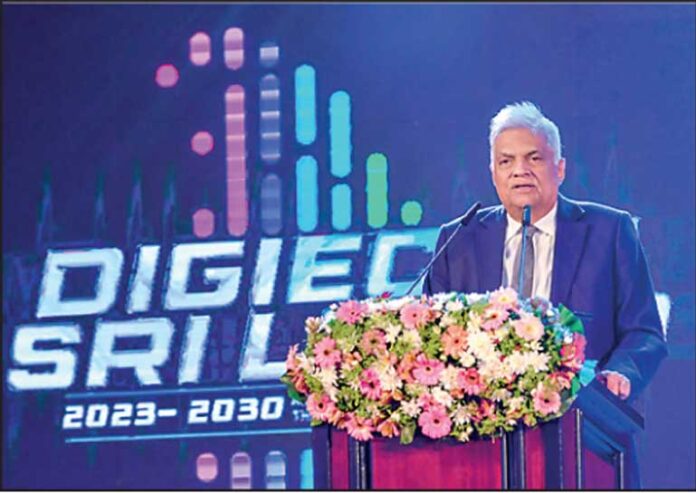State Minister of Technology Kanaka Herath unveiled the ambitious DIGIECON 2030 program, designed to propel Sri Lanka’s economy towards a comprehensive digital ecosystem that fosters inclusivity and utilizes advanced technology-based solutions. The program encompasses a digital master plan, a regulatory policy framework, and a series of annual events aimed at driving the country’s digital transformation.
During a press conference titled “Collective Path to a Stable Country” held at the Presidential Media Centre, Minister Herath emphasized the significance of DIGIECON 2030 in guiding Sri Lanka’s journey towards a thriving digital economy. The program’s inaugural event, “DIGIECON 2023,” scheduled for October to November 2023, will introduce the digital master plan and regulatory policy framework, while featuring international conferences, symposiums, and exhibitions focused on accelerating digital transformation and fueling the envisioned “Digital Economy 2030.”
Additionally, Minister Herath announced that the procurement process for the Indo-Sri Lanka Joint Project for the Sri Lanka Unique Digital Identity Project (SL-UDI) has commenced. The project, initiated with a memorandum of understanding (MoU) signed between Sri Lanka and India on March 28, 2022, aims to develop a unique digital identification system for every citizen in the country.
The Indian government will oversee the software development for the SL-UDI project and has pledged a contribution of 300 million Indian Rupees. The Information and Communication Technology Agency of Sri Lanka (ICTA) will supervise the installation of major automated biometric systems and other software systems. ICTA, along with PricewaterhouseCoopers (PwC) Lanka, will provide the necessary technological knowledge to create a robust digital ID system.
Furthermore, the Ministry of Technology, in collaboration with the Ministry of Education, plans to launch a specialized six-month IT course for Arts undergraduates to bridge the IT skills gap. Subject-matter specialists will contribute their expertise to develop a curriculum aligned with industry requirements.
The implementation of the SL-UDI project holds immense potential for Sri Lanka. It will facilitate more efficient delivery of government services, contribute to poverty reduction and welfare programs, promote financial inclusion, and minimize corruption. By embracing DIGIECON 2030 and the SL-UDI project, Sri Lanka aims to position itself as a digitally advanced nation, fostering economic growth and societal development in the digital era.
